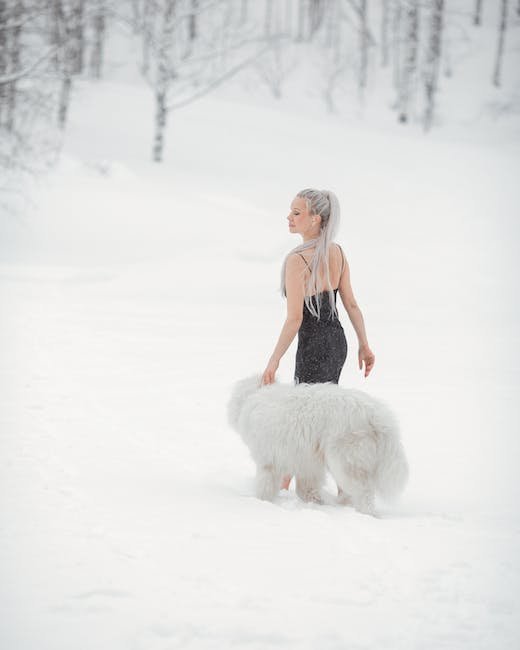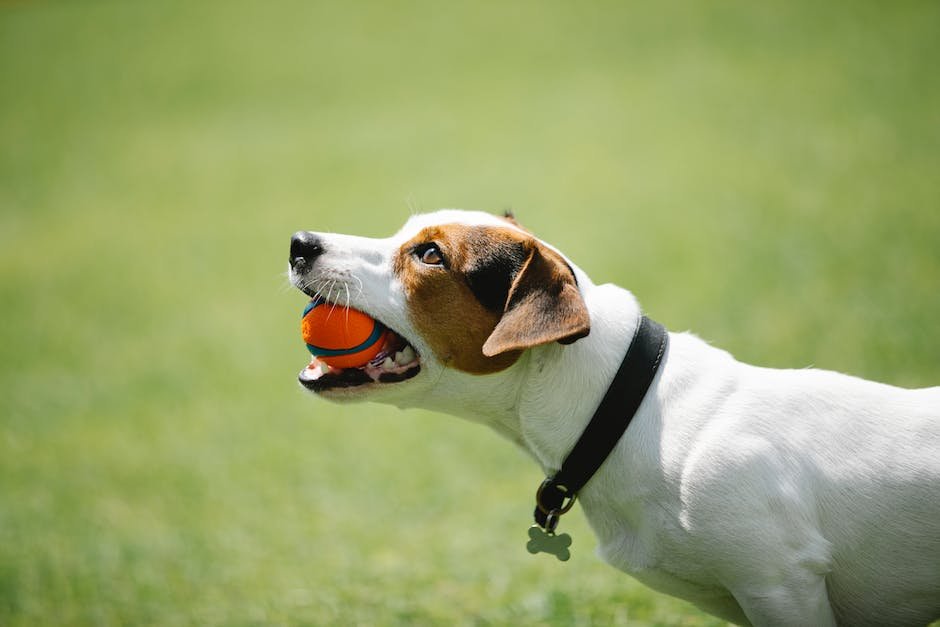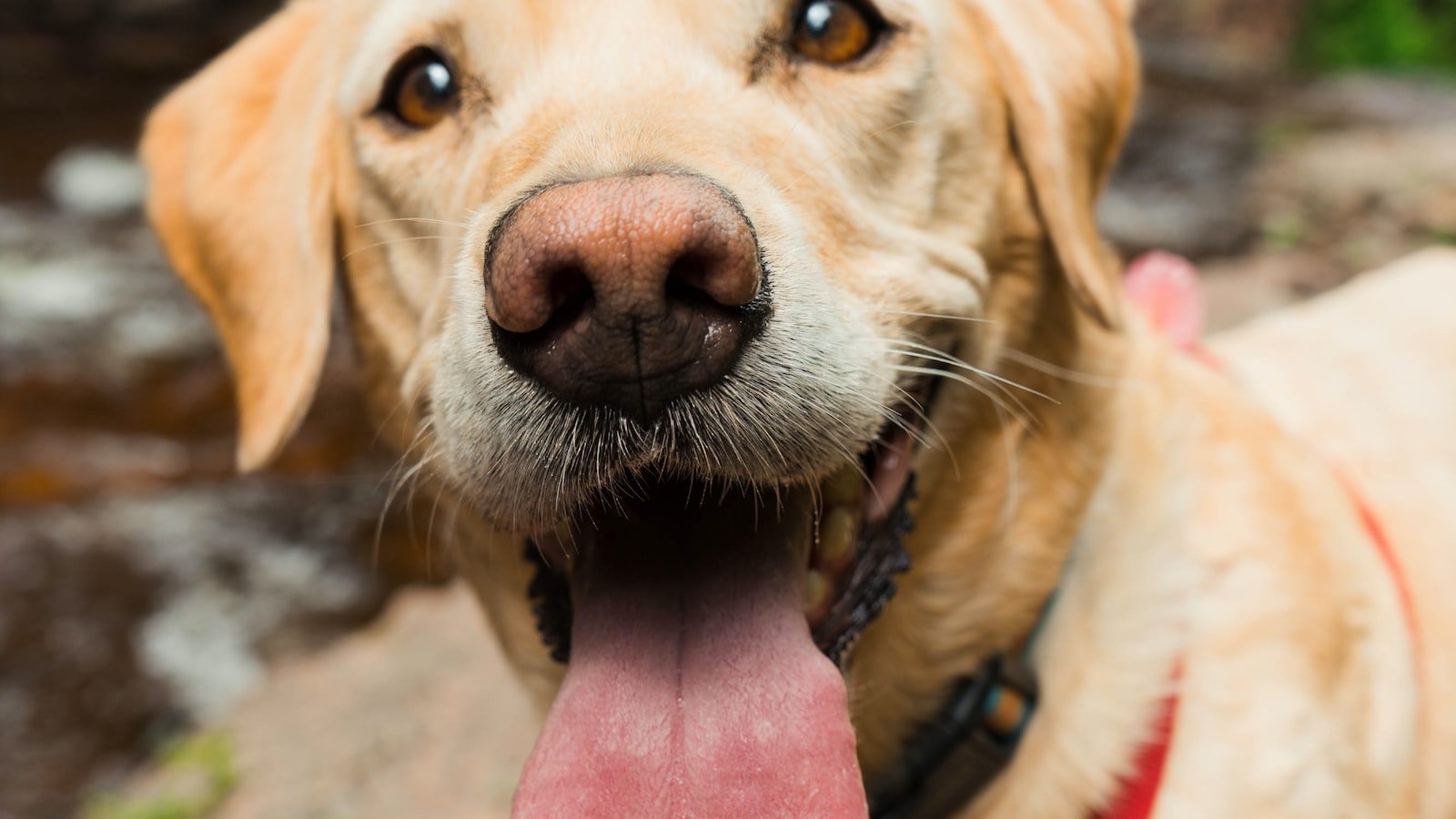Ever dreamt of swaying and twirling with your canine companion in perfect harmony? Look no further than the enchanting world of freestyle dog training, where dogs and their human partners come together to create mesmerizing dance routines. With its powerful blend of creativity, precision, and boundless canine enthusiasm, freestyle offers a captivating form of expression that fuses artistry and obedience training into one harmonious partnership. Discover the secrets behind this extraordinary phenomenon as we delve into the captivating realm of “Dog Training for Freestyle: Dance the Night Away.” Get ready to witness the magical bond between humans and their four-legged friends like never before, as they take center stage and leave audiences spellbound with their synchronized moves and joyful performances.
Table of Contents
- The Joy of Canine Freestyle: Unleash Your Dog’s Dancing Potential
- Creating a Strong Foundation: Essential Dog Training Techniques for Freestyle
- Step-by-Step Guide: Teaching Your Dog Basic Dance Moves
- Mastering Choreography: Combining Tricks and Dance Movements for a Flawless Routine
- Taking Your Freestyle Performance to the Next Level: Advanced Training Tips for Show-Stopping Performances
- Q&A
- In Conclusion

The Joy of Canine Freestyle: Unleash Your Dog’s Dancing Potential
Canine freestyle, also known as doggy dancing, is not just a performance but a way to bond and connect with your furry friend on a whole new level. This unique dog sport combines obedience training, music, and choreography to create a mesmerizing spectacle of movement and coordination.
When you engage in canine freestyle, you unlock your dog’s hidden talents and showcase their vibrant personality through synchronized routines. The dance floor becomes a stage where your pup can express themselves, wagging their tail in rhythm and effortlessly following your lead.
With canine freestyle, the possibilities are endless. You can incorporate flashy tricks, spins, and jumps, or focus on graceful movements and smooth transitions. This incredible activity not only provides mental stimulation and physical exercise for your furry friend but also allows you to explore your creativity and create an emotional connection like no other.
- Unleash your dog’s inner dancer
- Bond and connect with your pup on a new level
- Showcase your dog’s vibrant personality through choreography
- Explore your creativity by designing synchronized routines
- Provide mental stimulation and physical exercise

Creating a Strong Foundation: Essential Dog Training Techniques for Freestyle
Dog training for freestyle is an art form that requires patience, dedication, and a solid foundation. Whether you’re a novice or an experienced trainer, mastering these essential techniques will set you and your furry dance partner up for success.
1. Positive Reinforcement: Training with positive reinforcement is key to building a strong bond with your dog and encouraging them to perform their best. Reward your pup with treats, praise, and playtime whenever they execute a move correctly, ensuring they associate freestyle training with positive experiences.
2. Clicker Training: Utilize clicker training to help your dog understand and execute commands more efficiently. Pair the distinct sound of the clicker with treats or rewards as a way of marking the precise moment your dog performs the desired action. This technique aids in clear communication and reinforces their understanding of specific movements.
3. Body Awareness and Balance: Freestyle requires your dog to move with grace and precision, so it’s vital to focus on their body awareness and balance. Incorporate exercises that enhance their proprioception and strengthen their core muscles. Simple activities such as balancing on a wobble board or walking over cavalettis can help improve their stability and coordination.
4. Musicality: Freestyle is all about expressing the music through synchronized movements with your dog. Teach your dog to respond to music cues and adjust their pace accordingly. Introduce them to different genres and rhythms, allowing them to feel and interpret the music while maintaining their focus and synchronicity with you.
5. Breakdown and Shaping: Breaking down complex routines into smaller, achievable steps is essential for effective training. Focus on one movement at a time and gradually shape it into the desired behavior. Celebrate each milestone along the way, and remember that repetition and consistency are key to mastering any new routine.
By incorporating these essential dog training techniques into your freestyle routine, you’ll be well on your way to creating a strong foundation that will bring out the best in you and your four-legged dance partner. So, put on some music, grab those treats, and let the training begin!

Step-by-Step Guide: Teaching Your Dog Basic Dance Moves
Ready to impress your friends and family with your four-legged friend’s dance moves? Teaching your dog basic dance moves can be a fun and rewarding experience for both of you. With a little patience, consistency, and lots of treats, you’ll have your pup pirouetting in no time. Follow this step-by-step guide to get started:
1. Choose the Right Space
Find a spacious area in your home or a quiet outdoor spot where you and your dog can practice without distractions. Make sure there’s enough room for both of you to move around comfortably.
2. Warm-Up Exercises
Just like humans, dogs need to warm up before dancing. Begin with a short walk or some gentle stretching exercises to get your dog’s muscles warmed up and ready for action.
3. Teach Basic Commands
Before diving into complicated dance moves, make sure your canine companion knows basic commands like sit, stay, and come. These commands will form the building blocks for more advanced steps.
4. Start with Simple Moves
Begin with easy dance steps like spinning in a circle or standing up on hind legs. Use treats and positive reinforcement to encourage your dog to mimic your movements. Repeat these steps until your dog becomes comfortable with them.
5. Gradually Introduce Advanced Moves
Once your dog has mastered the basics, you can start introducing more advanced moves, such as tapping their paws or jumping through hoops. Break down these moves into smaller steps and reward your dog for each successful attempt.
Remember, teaching your dog dance moves should be a fun and enjoyable experience. Always keep training sessions short, be patient, and celebrate even the smallest achievements. Dancing with your furry companion will not only strengthen your bond but also provide an entertaining spectacle for everyone around!
Mastering Choreography: Combining Tricks and Dance Movements for a Flawless Routine
When it comes to choreography, it’s not just about dancing to the rhythm; it’s about creating an awe-inspiring routine that seamlessly blends tricks and dance movements. This fusion of athleticism and artistry is what sets apart a flawless routine from an ordinary one.
So, how do you go about mastering this skill? Here are some key tips to help you combine tricks and dance movements effectively:
- Start with a solid foundation: Before diving into the intricate choreography, it’s essential to have a strong foundation in both dance techniques and trick execution. Practice and perfect the fundamental moves to ensure a solid base to build upon.
- Understand the music: A flawless routine is not just about executing tricks and dance moves; it’s about syncing your movements with the music. Study the rhythm, beats, and emotions of the music to create a choreography that compliments and enhances the song.
- Blend seamlessly: The key to combining tricks and dance movements lies in the art of seamless transition. Avoid abrupt shifts between tricks and dance steps by incorporating fluid movements and connecting elements.
- Showcase individuality: While it’s important to master the technical aspects, don’t forget to infuse your unique style and personality into the routine. Add your personal touch to the choreography to make it stand out from the crowd.
- Practice, practice, practice: Finally, mastering choreography requires relentless practice. Put in the hours to refine your movements, improve your timing, and perfect the overall routine. The more you practice, the smoother and more flawless your routine will become.
Remember, combining tricks and dance movements is a delicate balance that requires both physical prowess and artistic finesse. With dedication, creativity, and a continuous drive for improvement, you can create a flawless routine that mesmerizes audiences and showcases your talent at its best.
Taking Your Freestyle Performance to the Next Level: Advanced Training Tips for Show-Stopping Performances
Once you’ve mastered the basics of freestyle performance, it’s time to elevate your game and captivate your audience with some advanced training techniques. These tips will help you take your performance to the next level, leaving your spectators in awe.
1. Push your boundaries: To truly impress your audience, it’s important to constantly challenge yourself and push past your comfort zone. Experiment with new moves and combinations that showcase your unique style and flair. Embrace the adrenaline rush that comes with taking risks, and watch as your performance evolves into something truly outstanding.
2. Perfect your transitions: Seamless transitions are the hallmark of a mesmerizing freestyle performance. Focus on smooth movements and fluidity as you transition between various elements of your routine. By linking your tricks and moves effortlessly, you’ll create a visually captivating experience that keeps your audience engaged from start to finish.
3. Add creative elements: Elevate your performance by incorporating unexpected and creative elements into your routine. This could include prop manipulation, acrobatics, or even incorporating different dance styles. By bringing a diverse range of skills into your freestyle performance, you’ll leave an unforgettable impression on your audience, making it a show they’ll talk about for years to come.
Q&A
What is freestyle dog training?
Freestyle dog training is a unique combination of obedience training and choreographed routines set to music. It involves teaching your dog a variety of tricks, moves, and behaviors that can be seamlessly integrated into a dance routine.
Can any dog participate in freestyle training?
Yes, any dog can participate in freestyle training regardless of their breed, size, or age. It’s all about finding the right routine and moves that showcase your dog’s strengths and abilities.
Do I need any prior experience to start training my dog for freestyle?
While prior dog training experience can be helpful, it is not necessary to start training your dog for freestyle. All you need is patience, dedication, and a strong bond with your furry friend.
What are some basic commands I should teach my dog before starting freestyle training?
Some basic commands you should teach your dog before delving into freestyle training include sit, stay, down, come, and heel. These commands will form the foundation for more complex moves and routines.
What kind of music is suitable for freestyle routines?
The choice of music for freestyle routines is entirely up to you and your dog’s personality. Popular options range from classical and upbeat pop songs to catchy tunes from movies or musicals. The key is to select music that complements your dog’s movements and showcases their personality.
Can I compete with my dog in freestyle competitions?
Absolutely! Freestyle dog competitions are held worldwide and offer a platform for dog owners to showcase their dog’s training and creativity. It’s a wonderful opportunity to bond with your dog and meet fellow enthusiasts.
How long does it usually take to train a dog for freestyle?
The time it takes to train a dog for freestyle varies depending on the complexity of the routine and the dog’s individual learning pace. It can take anywhere from a few weeks to several months of consistent training to create a well-polished freestyle routine.
Are there any safety considerations I should be aware of during freestyle training?
Safety is paramount during freestyle training. Ensure you have a suitable training area, use appropriate gear such as comfortable harnesses, and avoid moves that could potentially harm your dog. Always prioritize your dog’s well-being and consult with a professional trainer if needed.
Can freestyle training strengthen the bond between me and my dog?
Yes, freestyle training is a fantastic way to strengthen the bond between you and your dog. The training process involves positive reinforcement, trust-building exercises, and working together as a team, forming an unbreakable bond of mutual understanding and respect.
Are there any resources available for further learning about freestyle dog training?
There are various resources available for further learning about freestyle dog training, including books, online courses, and videos demonstrating training techniques and routines. Joining local dog training clubs or attending workshops can also provide valuable hands-on guidance.
In Conclusion
As we conclude our exploration into the enchanting world of dog training for freestyle, we are left with one undeniable truth – dancing truly knows no boundaries. From the graceful twirls to the synchronized footwork, the art of canines gracefully dancing alongside their human partners is a sight that emanates pure joy and harmony.
Throughout this article, we have delved into the intricacies of this unique form of dog training, unraveled the secrets behind the captivating routines, and witnessed the undeniable bond that is fostered between man and his faithful furry companion. It is a mesmerizing spectacle that not only entertains, but also uplifts the spirits of all those lucky enough to witness it.
The power of freestyle lies not only in its ability to showcase the remarkable intelligence and agility of our canine friends, but also in its capacity to transcend language barriers, cultures, and backgrounds, reminding us that the language of dance is universal. Whether it is a delicate waltz, a hip-swiveling salsa, or a playful jive, the connection between dog and handler can be seen in every step, every bounce, and every synchronic movement that fills the dancefloor.
However, behind this seamless elegance lies hours of dedication, training, and patience. The intricate moves, the perfectly timed twists, and the impeccable posture are the product of countless hours spent bonding with our four-legged partners, working tirelessly to transform them into dance superstars. But the reward is immeasurable – the pure elation of seeing our furry companions display their newfound skills, the applause of an audience mesmerized by their grace, and the unbreakable bond formed on the dancefloor.
So, as we invite you to explore the world of dog training for freestyle, we implore you to dare and dream with your pup. Step onto that dancefloor, embrace the melodies, and embark on a magical journey that transcends the mundane world. Unleash your inner dancer, celebrate the boundless love between human and dog, and dance the night away, for in the realm of freestyle, there are no limits to what you and your faithful companion can achieve.
So, put on your dancing shoes, crank up the music, and let the enchantment of freestyle guide your every move. Together, you and your canine partner have the power to create moments that will linger in the hearts of those who witness the magic unfold. Dance with passion, with dedication, and always remember, the world is your dancefloor, and the night is yours to own.
As an affiliate, my content may feature links to products I personally use and recommend. By taking action, like subscribing or making a purchase, you’ll be supporting my work and fueling my taco cravings at the same time. Win-win, right?
Want to read more? Check out our Affiliate Disclosure page.